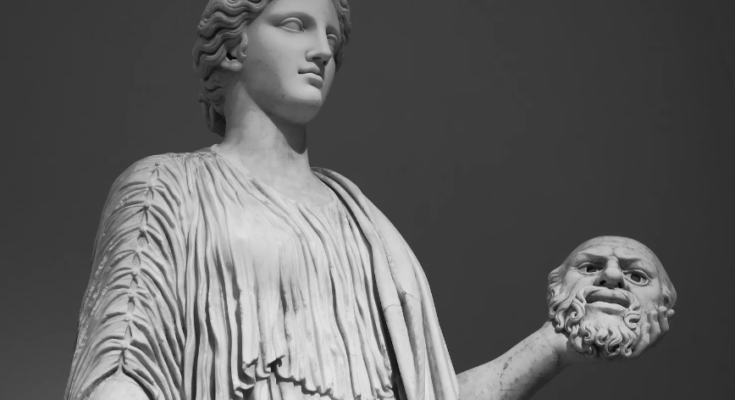Ancient Greece was a culturally rich place, full of fascinating religious rituals and festivals that sometimes were even secret. However, very few were as fascinating, intriguing and mysterious as the Thesmophoria festival.
This autumn festival that was taking place once a year was one of the oldest and most widespread events in the Greek world. It was celebrated in a staggering total of 50 Greek cities, all the way from Sicily in the West to Asia Minor in the East. What made the Thesmophoria truly unique is that it was an exclusively women-only event without any men. Men were strictly forbidden from attending the rites. Not only that but there was a penalty of death for those who dared ignore the male ban.
The beginnings of this tradition of ancient Greece
Many have wondered throughout history about the origins of the Thesmophoria. Unfortunately, the roots of this fascinating event have been lost in the dark alleys of time. Nonetheless, archaeologists consider that it likely began hundreds of years before the classical period of Greece, probably even before the 11th century BC. To comprehend how deep inside the mists of time this timeframe is, we are talking about the era even before the Ionian Greeks migrated to the south of the Balkan peninsula.
In terms of the religious aspect of this festival, the Thesmophoria was dedicated to the worship of Demeter, the Greek goddess of agriculture, as well as her daughter Persephone. Its main purpose was to promote the fertility of both the Earth, namely the crops and women, who wished to give birth to many children. This would be achieved through secret rituals in honour of the two goddesses.
The importance of the female element
For the women who participated and were both married and classed as full citizens in their cities, the Thesmophoria was one of the rare chances to leave home and gather together with other women. This would be away from the limiting constraints of their predominantly male-dominated society, where the place of women was in the house. The festival gave these women an otherwise non-existent religious authority and autonomy, as they were responsible for the election of their own officials. Additionally, they carried out the sacred rites themselves without the presence of any men.
The most important rituals that took place during the event lasted for three days. They normally started with a procession of women who were carrying sacrificial items to a shrine of the honoured goddess, Demeter. There, the women would follow a strict ritual where they would reenact the grief of Demeter over the abduction to the underworld of her daughter Persephone. The reenacting women would do that by fasting and sitting on branches. Sacrifices of young pigs were also made and the remains of the unfortunate animals would be buried in underground chambers, specifically designed for the event.

On the last day of the Thesmophoria, the rotted remains of the animals that had been buried during last year’s pig sacrifices were dug up and placed on the altar of the temple. The women also made many offerings of fertility cakes. These particular cakes were baked in the shape of genitals, in yet another demonstration of profanity that was socially and religiously accepted in ancient Greece, in direct contrast with what we know today about socially acceptable religious customs.
At some point during this event, ritual joking and foul language were also used to commemorate how the mythical figure Iambe made the grieving Demeter laugh, something that showed the importance of laughter in the life of humans even during the most serious situations. The festival concluded with group prayers for good crops in the coming season and many offspring. This was conducted under the umbrella of the name “Kalligeneia” which is Greek for “fair” or “good” birth.
It’s worth mentioning though that the details of the festivals remain a mystery and they widely varied depending on the location.
But why were men forbidden at the festival?
As is understandable, the highly secretive nature of the Thesmophoria festival has long fascinated and disturbed men not only in ancient Greece but even later, including those who tried to decode the mysteries of the event. The rites were so closely guarded that any man who even attempted to break the ban and intrude risked being violently attacked. This would not end there, however. The female attackers could then even go as far as to castrate them, showing how seriously they would take this festival.
Male writers of the time tried to connect the rituals to the mythical story of the descent and return of Persephone from the underworld and Hades. This would make sense to them, as it was mirroring the agricultural cycle of death and rebirth. Nonetheless, they remained uneasy with the idea of women having so much religious power and freedom even if only temporarily, as this was something unfathomable in every other aspect of ancient Greek life, regardless of the city.
Based on all these fascinating details, we can see how the Thesmophoria remains one of the most intriguing festivals of the ancient Greek religious calendar. This strictly women-only event gave participants a truly rare opportunity to show in public their own kind of religious authority. This would happen through secret rites for Demeter and Persephone, two female deities that were exceptionally important to the ancient Greeks.



